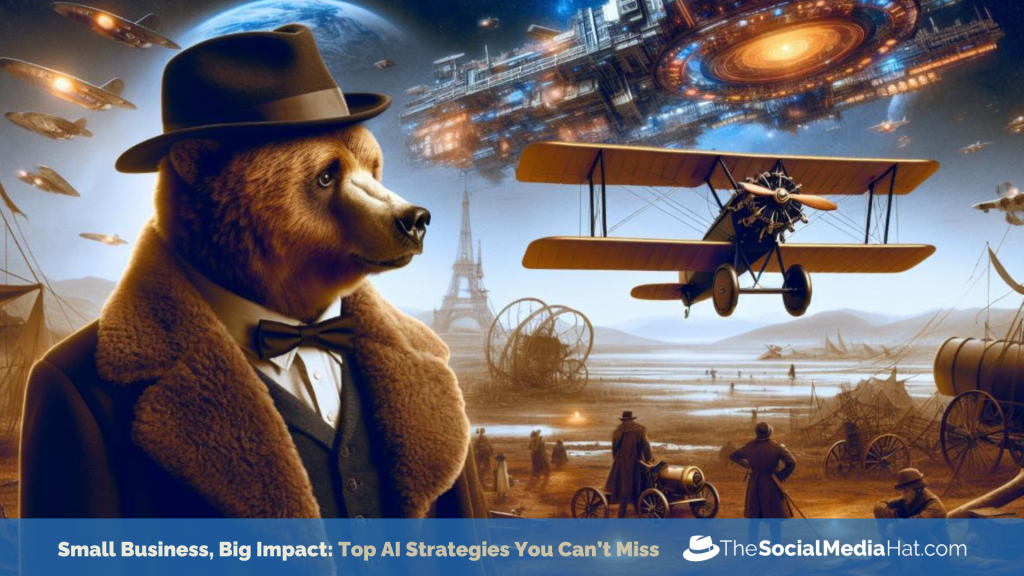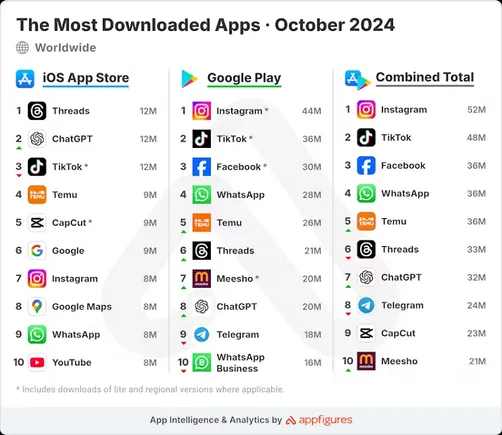Reading Time: 4 minutes
In the early 1900s, two brothers from Ohio dared to dream of flight. With limited resources but an abundance of ingenuity, Wilbur and Orville Wright achieved what many thought impossible—they soared into the skies and forever changed the course of history. Their success wasn’t born from vast capital or massive teams but from embracing innovation and relentless determination.
In August I had the pleasure of attending Podcast Movement – a terrific event – for the purpose of leveling-up my podcasting skills. It took place in Washington D.C. which meant that I’d have a couple hours before I left to hit up my favourite museum in the world, the Smithsonian Air & Space Museum.
After losing myself in the Fly Me To The Moon exhibit, I wandered back downstairs and found myself transported back to Kitty Hawk, alongside Wilbur and Orville’s massive and ingenious 1903 flyer. And as I strode around the room, taking in the displays and stories, I learned how that brave and innovative first flight led to more and more flights and demonstrations and advancements.
Today, small and medium businesses (SMBs) stand at a similar crossroads. The advent of Artificial Intelligence (AI) offers opportunities once reserved for industry giants. Just as the Wright brothers took to the skies, your business can leverage AI strategies to propel itself to new heights.

The AI Revolution and You
Artificial Intelligence is no longer the stuff of science fiction or exclusive to tech conglomerates. It’s a technology reshaping industries, enhancing customer experiences, and optimizing operations. And the best part? It’s more accessible than ever for businesses like yours.
But where do you begin? How can AI make a tangible difference in your daily operations and long-term growth? Let’s explore some of the top AI strategies that SMBs are successfully implementing right now.
Top AI Use Cases for SMBs
1. Enhancing Customer Service with AI Chatbots
Imagine you’re an online retailer, and customer inquiries flood in at all hours. Hiring a round-the-clock support team isn’t feasible, but leaving customers waiting isn’t an option either.
Enter AI chatbots. These intelligent assistants handle routine queries instantly, providing customers with immediate answers. For example, Sarah, owner of a small boutique, implemented a chatbot on her website. Not only did it improve customer satisfaction, but it also freed up her time to focus on curating new products. The result? Increased sales and happier customers.
We’ll have an entire episode of AI in Marketing: Unpacked with Kelly Noble Mirabella in a few weeks, devoted to AI chatbots.
2. Personalizing Marketing Efforts
Gone are the days of one-size-fits-all marketing. AI enables you to tailor your messaging to individual customer preferences.
Take Troy, who runs a local coffee shop. By using AI-driven analytics, he segmented his customer base and sent personalized promotions. Regulars received loyalty rewards, while new visitors got special first-time offers. This targeted approach led to higher engagement and a noticeable uptick in repeat business.
Zontee Hou talks about personalization at length in our interview.
3. Streamlining Operations with Predictive Analytics
Operational hiccups can be costly. Predictive analytics helps you anticipate issues before they become problems.
Consider Linda, managing a small manufacturing firm. Equipment downtime was eating into her profits. By adopting AI predictive maintenance, she could foresee equipment failures and schedule timely repairs. This proactive approach reduced downtime, saved costs, and increased productivity.
Asavari Moon offered her perspective on how AI strategies can help with predictive analysis.
4. Improving Decision-Making with AI Data Insights
In today’s fast-paced market, staying ahead requires informed decisions based on real-time data.
Alex, who owns a marketing agency, used AI to analyze market trends and customer behavior. These insights allowed him to pivot his services to meet emerging needs before his competitors even noticed the shift. His agency not only retained clients but also attracted new ones looking for cutting-edge strategies.
Chris Penn’s insights on data and analytics are invaluable.
5. Automating Routine Tasks
Administrative tasks can drain valuable time and resources. AI automation streamlines these processes, allowing you to focus on what matters most.
For instance, Emily, running a small accounting firm, implemented AI solutions for data entry and appointment scheduling. This automation reduced human error and freed her team to concentrate on client relationships and strategic advisory services, leading to higher client satisfaction and growth in her firm.
Automation is a recurring theme throughout all of the podcast episodes, and something Chris Carr is particularly familiar with.
Overcoming Barriers to AI Adoption
You might be thinking, “This sounds great, but isn’t AI expensive and complicated?” It’s a common concern, but the landscape has changed.
Affordability: Cloud-based AI services have made advanced technologies accessible without hefty upfront investments.
Ease of Use: Many AI tools are designed with user-friendly interfaces, requiring no specialized technical expertise.
Support and Resources: From online tutorials to consulting services, ample support is available to help you get started.
Embracing AI isn’t about overhauling your entire business overnight. It’s about identifying areas where technology can make a meaningful impact and taking incremental steps toward innovation.
Getting Started with AI Strategies
Assess Your Needs
Reflect on your business processes. Where are the bottlenecks? What tasks are time-consuming or prone to error? These areas are prime candidates for AI solutions.
Set Clear Objectives
Define what you want to achieve. Whether it’s improving customer satisfaction, increasing sales, or optimizing operations, having clear goals will guide your AI adoption strategy.
Start Small
Pilot a project in one area of your business. This approach allows you to measure results and make adjustments before scaling up.
Seek Support
Don’t hesitate to reach out for help. Whether it’s consulting with an expert or participating in webinars, leveraging available resources can ease the transition.
Study Katie Robbert’s 5P Framework to help gauge your SMB’s readiness and potential for AI.
Just as the Wright brothers soared into uncharted skies, your business can reach new horizons with AI. The technology that once seemed out of reach is now at your fingertips, ready to unlock opportunities and drive growth.
Are you ready to take the next step with AI strategies?
Join me for an exclusive webinar: “The Future of AI in Marketing: Preparing for Transformation.” We’ll dive deeper into how AI is reshaping the business landscape and how you can harness its power to stay ahead of the curve.
Reserve your spot now and embark on your journey toward innovation and success.
Together, let’s redefine what’s possible for your business.

Related
Discover more from The Social Media Hat
Subscribe to get the latest posts sent to your email.










